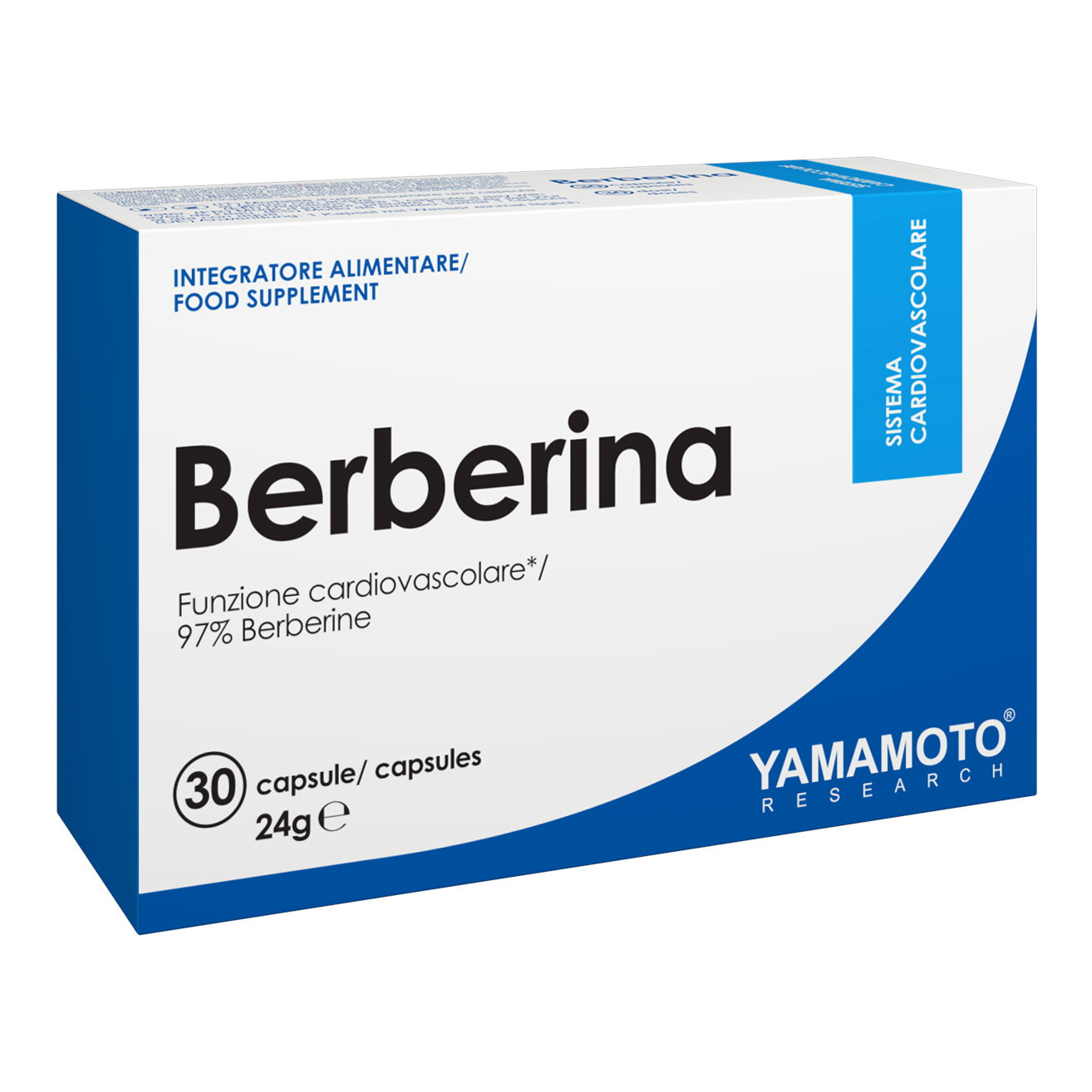UNISTORE FZE
YAMAMOTO BERBERINA 30 Capsules
YAMAMOTO BERBERINA 30 Capsules
Couldn't load pickup availability
Berberine is a vegetable alkaloid with a bitter taste and an intense yellow colour, present in the bark, roots and stems of plants belonging to the genus Berberis, such as the barberry (Berberis vulgaris L.). It is a quaternary benzo isoquinolino alkaloid, contained in the roots, stem and bark of a plant commonly called "Barberry".
Barberry is a plant of the Berberidaceae family and is widespread both in Asia and in Europe. There are various species of this plant, of which the Berberis aristata L. is among the most used in Eastern Traditional Medicines. Berberine is the main compound and the one with the most evidence supporting its activity on the human organism on various fronts, but other important substances are also present, such as vitamin c (ascorbic acid), vitamin k, flavonoids, flavonols and coumarins.
It is a group of powerful bioactive substances with high therapeutic potential. In fact, there are numerous studies that demonstrate the properties of Berberine, over 500 actually, making Berberine one of the most studied natural molecules ever. Used for centuries in traditional Chinese and Ayurvedic medicine, Berberine has recently aroused growing interest on the part of "modern" Western medicine, given its numerous characteristic bioactivities, including antioxidant, anti-diabetic (where it is gaining much acclaim and interest), antidiarrheal-antimicrobial, cardiovascular protector, neuroprotector, anti-obesity, and hepatoprotector. Today research is focused on the properties and benefits of Berberine and its effect on type 2 diabetes and its cardiovascular protection resulting from its cholesterol-lowering properties.
This alkaloid has become very well-known due to the correlation between its action and that of metformin, the widely used oral antidiabetic used for type 2 diabetes. This interesting research on Berberine has revealed that this natural active ingredient has a hypoglycaemic action comparable to metformin, acting both to lower the blood sugar level and thus avoid the hyperglycaemia characteristic of type 2 diabetes and favour better use of sugars. Studies show that it is able to decrease blood glucose levels in several ways. Researchers have highlighted in particular its action on an enzyme that plays an important role in cellular energy homeostasis, a key enzyme involved in glucose metabolism (and more!): AMPK. By allowing the activation of this powerful enzymatic "driver", Berberine increases insulin sensitivity and promotes the absorption and utilisation of glucose within the body. According to some studies, it also allows the regulation of gluconeogenesis, a mechanism that leads to the synthesis of glucose in the liver. As a result, the different actions of Berberine reduce the level of glucose in the blood and thus to counteract the hyperglycaemia characteristic of type 2 diabetes. The final effect of AMPK stimulation is a reduction in blood glucose and an increase in insulin sensitivity.
It is a truly fascinating compound that is also studied widely in the cardiovascular field. In particular, as regards its role in the metabolism of lipids, in fact its power to reduce cholesterol by various mechanisms has been highlighted by many studies in the literature. Berberine appears to reduce the expression of PCSK9 and also decreases the degradation of LDL-C receptors by stimulating uptake of blood cholesterol by the liver and promoting the clearance of cholesterol from the blood towards bile. It also acts directly on the expression of the LDL receptor and causes the up-regulation of these receptors,y stabilising their mRNA by activating extracellular signals regulated by kinases. Furthermore, Berberine reduces intestinal absorption of cholesterol, increasing its fecal excretion and promoting cholesterol turnover and the formation of bile acids. And finally, Berberine can reduce the synthesis of triglycerides.
Research has concluded that Berberine may show particular effects in the control of hyperlipidemia. Lan et al. (2015) conducted the latest and largest meta-analysis, which includes 27 clinical trials with 2,569 participants. According to the results of this meta-analysis, Berberine was able to reduce TG, TC, LDL-C and LDL-C levels and increase HDL-C content. Berberine could therefore have good potential for use as a nutraceutical with regard to the control of lipids and cholesterol.
Berberine also has a natural antioxidant action against oxidative stress, characterised by an accumulation of reactive species within the organism, and the origin of a great deal of cellular damage. In this respect it is also implicated in counteracting cellular aging, where Berberine is finding an additional use.
Its action against infection has been known for millennia thanks to Traditional Medicines: berberidacee, are appreciated in Asia for their anti-infectious virtues and their capacity for counteracting the development of a number of infectious agents. For example, it has particular anti-diarrheal properties and antibacterial actions against staphylococci, streptococci and salmonellae. It also appears to act against other parasites with an antiamoebic and antiprotozoal action.

-
Shipping
Share the details of your shipping policy.
-
Returns
Share the details of your return policy.

